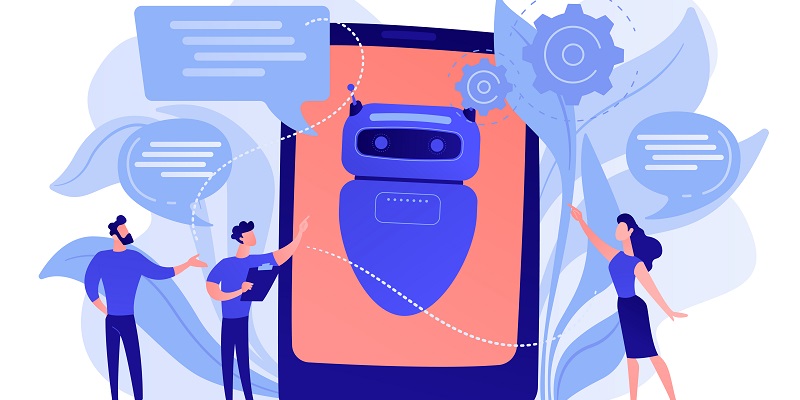Can chatbots really improve customer experiences? For the past few years, retailers of all sizes have been implementing chatbots to provide quick and efficient customer service. While some businesses have found success with this technology, others have faced challenges that have left customers frustrated with their interactions. But with advancements in artificial intelligence, we may be on the brink of a new era of chatbot technology that could revolutionize the industry.
The challenges of traditional retail chatbots
Many people who interacted with a retail chatbot didn’t have a pleasant experience. Traditional retail chatbots were built using a rule-based approach, where predefined responses were triggered by specific keywords. This approach proved too simplistic and inflexible for many customers, leading to unsatisfactory experiences. Additionally, traditional chatbots lacked the ability to understand natural language and nuances.
The Promise of Next-Generation Conversational and Generative AI
Next-generation conversational and generative AI is expected to solve the challenges users and business owners face with traditional chatbots. Unlike rule-based chatbots, these chatbots can use machine learning algorithms to better understand human language. They can also generate answers to previously unseen queries, resulting in a more personalized and engaging experience for customers.
The Ubiquitous Usage of Chatbots Among Consumers
Most consumers would have interacted with a chatbot from some organization, whether that be for retail, customer service, or other industries. With chatbots becoming increasingly common, it’s necessary to improve upon the existing technology. If we do so, it can lead to more satisfactory customer experiences and greater business success.
The Limitations of Traditional Chatbots
Traditional chatbots don’t work for the average user. Without NLP technology, these chatbots fail to understand nuances, syntax, and the unique styles of individual communication. They cannot develop accurate responses or suggest products or solutions that cater to individual customer needs.
The low impact of chatbot product recommendations on consumer behavior
Customer behavior studies have shown that only around 9% of customers make a purchase because a chatbot suggested it. To have a greater impact on customers, recommendations from chatbots need to be more personalized.
The Potential of Natural Language Processing and Personalized Responses to Improve Chatbot Experiences
With natural language processing (NLP), a better ability to handle nuance and complexity, and a greater ability to create personalized responses, conversational AI can improve existing chatbot experiences. By incorporating the machine’s deep learning capabilities, chatbots can have more complex, conversational, and nuanced responses that are tailored to the consumer’s requests.
The Gap Between Improved Chatbot Technology and Consumer Adoption
If ChatGPT is far better than traditional retail chatbots, why aren’t consumers using it? The answer is simple – consumer adoption is a challenge. User familiarity and confidence are two major factors causing the gap. The familiarity of chatbots is still in its infancy stage, and customers need time to develop the necessary trust to see them as a normal part of communication.
The Continued Effectiveness of Rules-Based Chatbots
Rules-based chatbots can be used effectively in situations where responses are required for a limited set of questions. For example, in settings like banking, retail, or healthcare, where the questions customers ask are limited, these chatbots perform well. Their reliability and pre-established answers guarantee customer satisfaction.
The Importance of Effective Customer Support Strategies for Small Businesses
Small businesses can still provide excellent customer support and experiences with the right strategies. Chatbots are one tool that can be used to improve customer service for small businesses. However, it’s essential to have a comprehensive customer support plan that also includes human interaction for complex issues.
Chatbots have come a long way, and we are on the brink of more significant advancements in their technology. With natural language processing and the ability to generate human-like responses, chatbots have the potential to greatly improve customer experiences. However, there is still work to be done in improving consumer adoption and building trust around this exciting technology. In the meantime, small businesses can provide excellent customer support by using strategies like reliable response formulas, thorough FAQs, and attentive human support.

